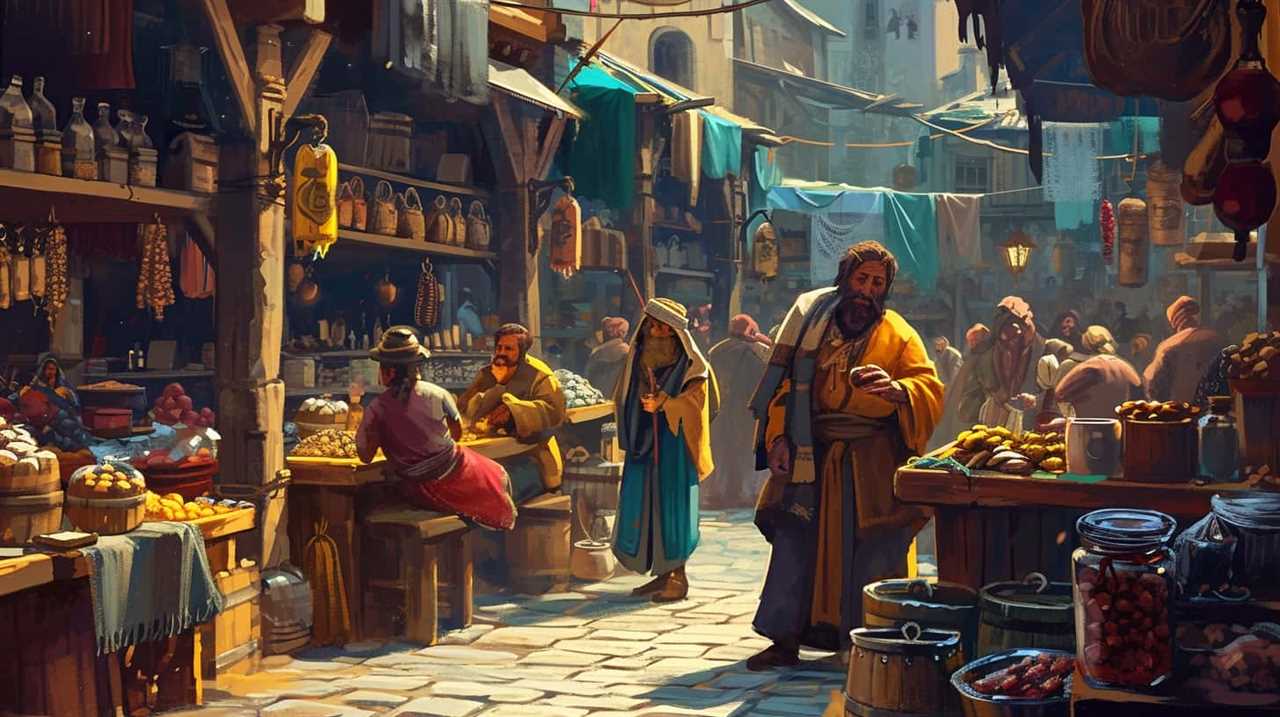Ladies and gentlemen, we welcome you to join us on an exploration into the fascinating realm of Marx’s theories on class conflict.
Within these nine insights, we will unravel the intricate web of social dynamics, exploring the clash between the proletariat and the bourgeoisie, the exploitation and alienation that permeate class relations, and the evolution of class consciousness.
As we delve into the depths of historical materialism and the role of capitalism, we will witness the revolutionary spirit that pulsates through Marx’s work.
Along the way, we will encounter critiques and challenges to his theories, as well as ponder the contemporary relevance of his ideas in our ever-changing world.
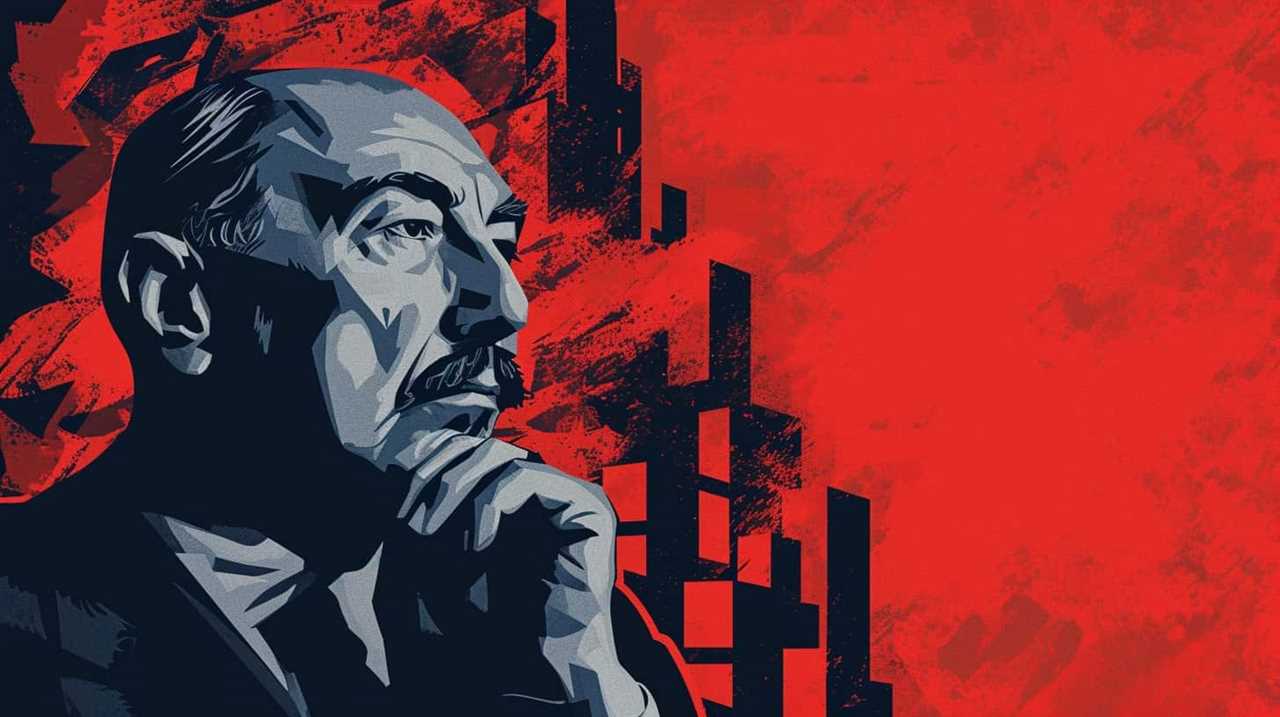
So, fasten your seatbelts and prepare for an innovative exploration of Marx’s class struggle theories!
Key Takeaways
- Marx’s theory of class struggle emphasizes the role of power dynamics and material conditions in driving conflict between social classes.
- Capitalism plays a significant role in perpetuating social inequality through its unequal distribution of wealth and resources, as well as its impact on social mobility.
- Economic exploitation is inherent in capitalism, with a select few benefiting at the expense of the working class who are forced to sell their labor power.
- Capitalism influences the education system and contributes to the formation of class consciousness, potentially leading to collective action among the working class, although competition and individualism can hinder such action.
Marx’s Definition of Class Struggle
Marx defines class struggle as the ongoing conflict between different social classes within a capitalist society. According to his concept, the bourgeoisie, or the capitalist class, exploits the proletariat, or the working class, in order to maintain their power and wealth. This exploitation creates a fundamental tension in society, as the proletariat seeks to overthrow the bourgeoisie and establish a classless society.
Marx’s theory of class struggle remains relevant in modern society, as income inequality and social stratification persist. The capitalist system continues to perpetuate the unequal distribution of resources and power, leading to a perpetuation of the class struggle. However, it’s important to acknowledge the limitations of Marx’s theory. While the focus on economic factors is crucial, it fails to consider other dimensions of inequality, such as race, gender, and sexuality. Additionally, the theory’s deterministic view of history overlooks the agency of individuals and the potential for social change.
Nevertheless, the concept of class struggle provides a theoretical framework for understanding power dynamics within a capitalist society. It highlights the inherent conflict between the ruling class and the working class, shedding light on the mechanisms that perpetuate inequality. By recognizing the ongoing class struggle, we can strive for innovation and social transformation, working towards a more just and equitable society.

Historical Materialism and Class Conflict
Historical materialism, a key concept in Marx’s class struggle theories, asserts that the material conditions of society shape the dynamics of conflict. By examining the economic base and the mode of production, Marx argues that the ruling class maintains power through the control of the means of production, while the working class is exploited and oppressed.
This power imbalance drives the class struggle, as the working class seeks to overthrow the ruling class and establish a more equitable society.
Material Conditions Shape Conflict
In our examination of Marx’s class struggle theories, we delve into how material conditions shape conflict, specifically through the lens of historical materialism and class conflict. Marx argued that social dynamics and historical context play a crucial role in shaping class conflict. He believed that the material conditions of a society, such as the means of production and the distribution of wealth, determine the social relations and power dynamics between different classes. These material conditions create inherent contradictions and conflicts within the capitalist system, leading to class struggle.
To better understand this concept, let’s consider a table that contrasts the material conditions of different classes in a capitalist society:
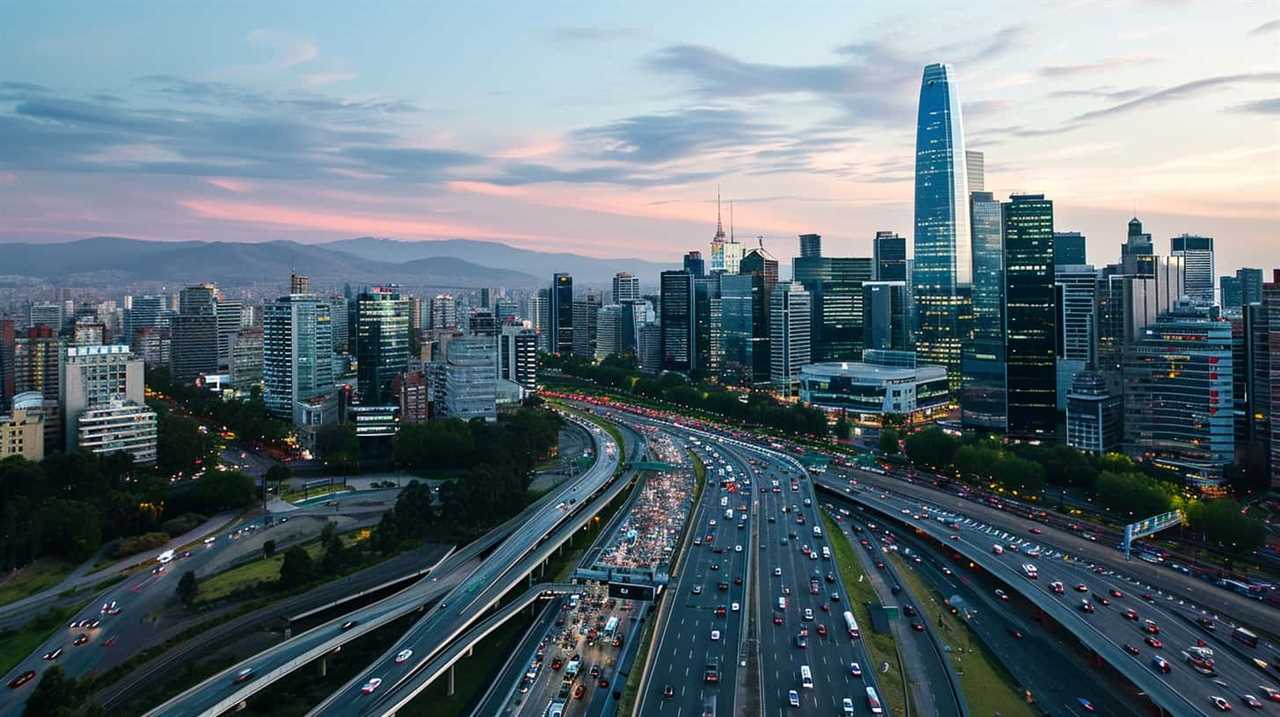
| Working Class | Bourgeoisie |
|---|---|
| Limited access to resources | Control over means of production |
| Reliance on selling labor power | Accumulation of capital |
| Exploited by capitalists | Exploitation of workers |
| Low wages and poor working conditions | High profits and luxurious lifestyles |
This table highlights the stark differences in material conditions between the working class and the bourgeoisie. These disparities create a fundamental conflict of interest, as the working class seeks to improve their conditions while the bourgeoisie aims to maintain and increase their wealth and power. Through historical materialism, Marx argued that these material conditions ultimately shape and drive class conflict, leading to revolutionary change and the potential for a new social order.
Power Dynamics Drive Struggle
Our analysis of Marx’s class struggle theories now turns to the role of power dynamics in driving class conflict. Power dynamics, as understood through Marx’s lens, play a crucial role in shaping social conflict. Here are three key insights to consider:
- Power imbalances: Marx argues that class struggle arises from the unequal distribution of power in society. The ruling class, which controls the means of production, exploits the working class, leading to tension and conflict.
- Class consciousness: Power dynamics also influence the development of class consciousness. As the oppressed class becomes aware of their exploitation, they unite and challenge the ruling class, creating a force for social change.
- Revolutionary potential: Marx believed that power dynamics could eventually lead to revolution. When the working class becomes conscious of their power, they can overthrow the ruling class and establish a more equitable society.
Understanding the role of power dynamics in driving class conflict is essential for analyzing social dynamics and envisioning innovative solutions to address inequality and social injustice.
The Role of Capitalism in Class Struggle
When examining the role of capitalism in class struggle, several key points emerge.

Firstly, capitalism is inherently linked to social inequality, as it allows for the concentration of wealth and power in the hands of a few.
Secondly, economic exploitation is a fundamental aspect of capitalism, as the bourgeoisie extract surplus value from the proletariat through the process of wage labor.
Lastly, capitalism plays a crucial role in shaping class consciousness, as the exploitation experienced by the working class can lead to an awareness of their shared interests and a desire for collective action.
Understanding these points helps to illuminate the complex dynamics at play within the capitalist system and the role it plays in perpetuating class struggle.

Capitalism and Social Inequality
We must acknowledge the pivotal role capitalism plays in perpetuating social inequality through its exploitation of class differences. Capitalism’s impact on social mobility is a significant factor in the widening gap between the rich and the poor.
The unequal distribution of wealth and resources under capitalism creates a system in which upward mobility becomes increasingly difficult for those in lower social classes.
Additionally, the role of technology in exacerbating social inequality can’t be ignored. While technological advancements have the potential to improve lives and create opportunities, they also contribute to the concentration of wealth and power in the hands of a few.
As technology continues to advance, it’s crucial to consider how it can be harnessed to address and mitigate social inequality rather than exacerbate it.
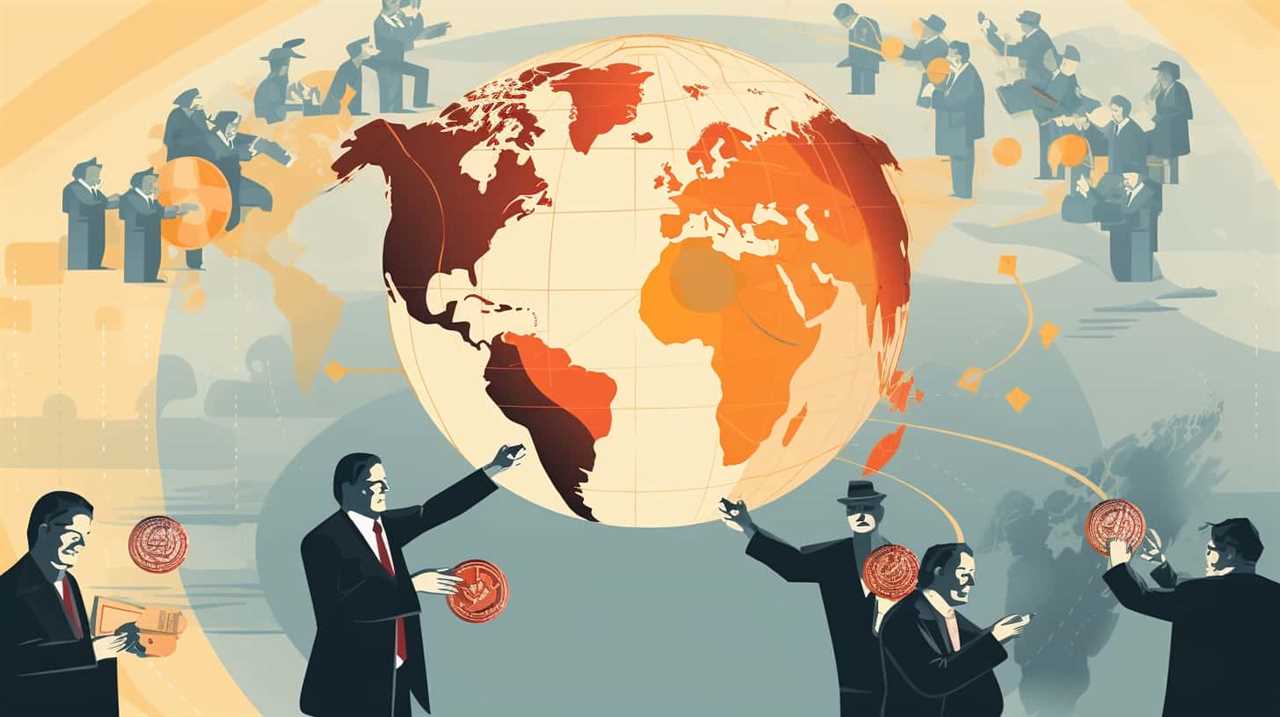
Economic Exploitation and Capitalism
The economic exploitation perpetuated by capitalism drives the class struggle, as it systematically advantages a select few while disadvantaging the majority. Capitalism, with its focus on profit and accumulation of wealth, creates a system where the working class is forced to sell their labor power in order to survive.
This unequal power dynamic allows capitalists to dictate wages and working conditions, leading to exploitation and alienation. The wealth generated by the labor of the working class is disproportionately distributed, with the majority receiving only a fraction of the value they produce.
This unequal wealth distribution further exacerbates the class divide and perpetuates the cycle of economic exploitation. The capitalist mode of production, by its very nature, perpetuates and intensifies the class struggle, as the working class seeks to challenge and overthrow the capitalist class in order to achieve a fair and just society.
Class Consciousness and Capitalism
Continuing the exploration of Marx’s class struggle theories, understanding the role of capitalism in class consciousness is crucial. Capitalism, as a mode of production, plays a significant role in shaping the way individuals perceive their social status and their position in society. Here are three key points to consider:

- The role of education: Capitalism influences the education system, perpetuating class divisions through unequal access to quality education. This unequal distribution of educational resources contributes to the formation of class consciousness, as individuals from different social classes are socialized differently and develop different perspectives on their own class identity.
- Collective action: Capitalism fosters competition and individualism, which can hinder collective action among the working class. However, it also creates shared economic interests and conditions of exploitation, leading to the potential for solidarity and collective mobilization against capitalist exploitation.
- The reproduction of social hierarchies: Capitalism reinforces and perpetuates social hierarchies by concentrating wealth and power in the hands of the bourgeoisie. This concentration of economic power further widens the gap between the proletariat and the bourgeoisie, fueling class consciousness and the desire for social change.
Understanding the interplay between capitalism and class consciousness is crucial in comprehending the dynamics of class struggle. Transitioning into the subsequent section on ‘the proletariat vs. the bourgeoisie’, it becomes evident that class consciousness is a driving force behind the proletariat’s struggle against the bourgeoisie.
The Proletariat Vs. the Bourgeoisie
How did Marx conceptualize the conflict between the proletariat and the bourgeoisie?
Marx’s analysis of the class struggle between the proletariat and the bourgeoisie is a foundational aspect of his theory of historical materialism. According to Marx, the proletariat’s struggle against the bourgeoisie arises from their opposing economic interests within the capitalist mode of production. The bourgeoisie, possessing the means of production, wield immense economic power and exploit the proletariat for their own gain. This power dynamic creates a fundamental antagonism between the two classes, leading to constant conflict and social unrest.
Marx argued that the bourgeoisie’s power stems from their control over the means of production, which allows them to accumulate wealth and maintain dominance over society. The proletariat, on the other hand, are the working class who don’t own the means of production and are forced to sell their labor in order to survive. This inherent exploitation of the proletariat by the bourgeoisie creates a system of economic inequality and class conflict.
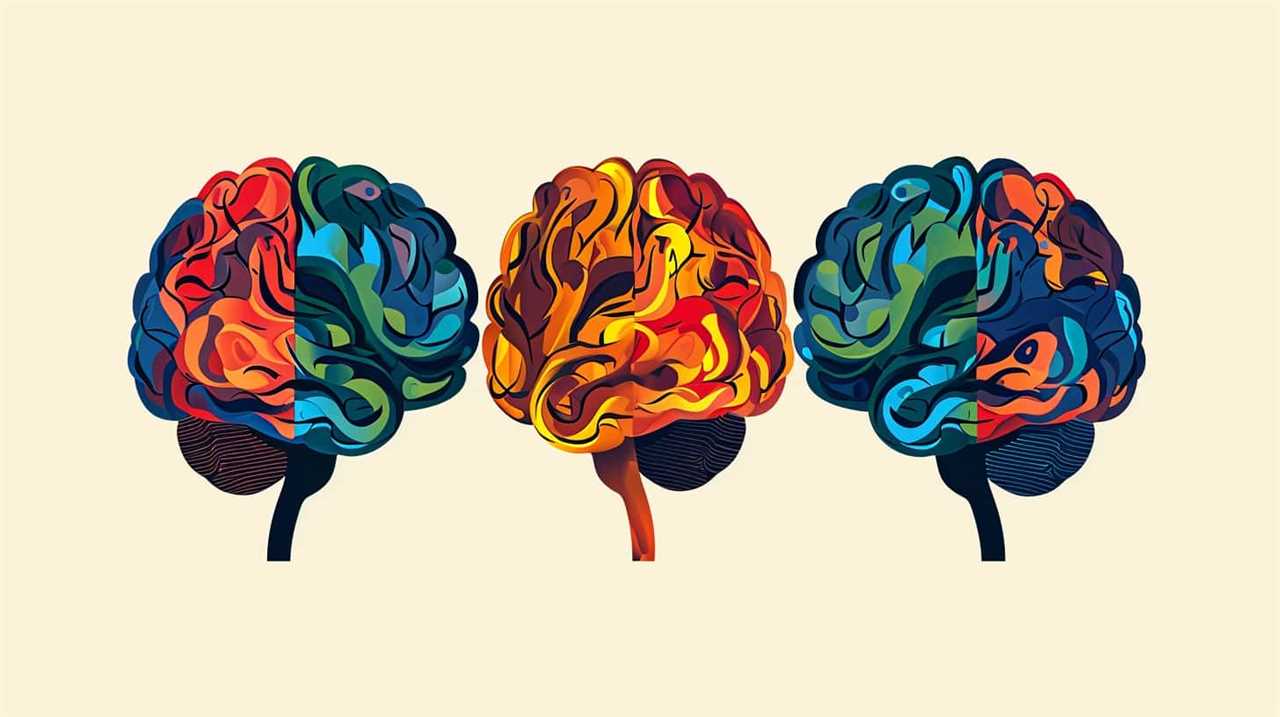
Marx believed that the proletariat, by virtue of their position within the capitalist system, would eventually develop class consciousness and rise up against the bourgeoisie in a revolution. This revolution would lead to the establishment of a classless society, where the means of production are collectively owned and the exploitation of the proletariat is abolished.
Exploitation and Alienation in Class Relations
To further delve into Marx’s analysis of class struggle, we explore the dynamics of exploitation and alienation within class relations. These two concepts are central to Marx’s understanding of capitalism and its impact on society. Exploitation refers to the process by which the bourgeoisie extract surplus value from the proletariat’s labor, resulting in the widening wealth gap between the two classes. Alienation, on the other hand, refers to the estrangement that workers experience under capitalism, where they’re disconnected from the products of their labor and become mere commodities themselves.
- Exploitation and alienation in capitalism: Under capitalism, the bourgeoisie, who own the means of production, exploit the proletariat by paying them wages that are less than the value they create through their labor. This allows the bourgeoisie to accumulate wealth and power at the expense of the working class.
- Impact of globalization on class relations: Globalization has intensified exploitation and alienation in class relations. With the expansion of multinational corporations and the outsourcing of labor, workers from different countries are pitted against each other, leading to a race to the bottom in terms of wages and working conditions.
- The evolution of class consciousness: Despite the challenges posed by globalization, it has also provided opportunities for workers to unite on a global scale and challenge the exploitative nature of capitalism. The emergence of global labor movements and solidarity networks has the potential to transform class relations and pave the way for a more equitable society.
The Evolution of Class Consciousness
Exploitation and alienation in class relations have paved the way for the evolution of our collective class consciousness. As the forces of globalization continue to shape our world, the impact on the evolution of consciousness can’t be ignored.
Globalization hasn’t only intensified the exploitation and alienation experienced by the working class, but it has also brought about new forms of class struggle and resistance.

The evolution of class consciousness can be understood as a process of awakening and awareness among the working class. It’s a transformative journey from a state of false consciousness, where individuals are unaware of their exploitation and alienation, to a state of true consciousness, where they recognize the systemic nature of their oppression. This evolution isn’t a linear process, but rather a complex interplay of various factors, including economic conditions, political events, and ideological shifts.
Globalization has had a profound impact on the evolution of class consciousness. On one hand, it has intensified the exploitation and alienation experienced by the working class, as capital flows freely across borders, seeking the cheapest labor and the highest profits. This has resulted in the displacement of workers, the erosion of labor rights, and the widening of income inequalities. On the other hand, globalization has also facilitated the spread of information and ideas, providing new avenues for the working class to organize and mobilize.
The impact of globalization on the evolution of class consciousness isn’t uniform across all regions and social groups. While some may argue that globalization has led to a homogenization of culture and a weakening of class consciousness, others point to instances of resistance and the formation of transnational alliances among workers. The emergence of global labor movements, such as the Fight for $15 campaign or the international solidarity among garment workers, demonstrates the potential for collective action and the development of a global class consciousness.
Revolution as the Solution to Class Struggle
Throughout history, revolutions have served as the catalyst for societal transformation in response to class struggle. When examining Marx’s class struggle theories, the concept of revolution emerges as a crucial element in resolving the inherent conflicts within society. Revolution, in this context, refers to the organized and collective efforts of the oppressed class to overthrow the ruling class and establish a new social order. This revolutionary movement aims to dismantle the existing power structures and redistribute resources and wealth in a more equitable manner.

To delve deeper into the significance of revolution as a solution to class struggle, we can explore the following points:
- Revolutionary movements: Revolutions have historically emerged as a response to the grievances and discontentment felt by the lower classes. These movements seek to challenge the dominant class and its exploitative practices. By mobilizing the masses, revolutionary movements strive to bring about radical change and create a more just society.
- Alternative solutions: While revolution may be seen as a powerful tool for social transformation, it’s essential to consider alternative solutions to address class struggle. Some argue that gradual reforms and policies aimed at reducing inequality and empowering the working class can lead to a more sustainable and peaceful resolution. These alternative approaches focus on systemic change through legislation, education, and social programs.
- The complexities of revolution: While revolutions have the potential to bring about significant change, they aren’t without their challenges and complexities. Revolutions often result in violence, instability, and uncertainty. Furthermore, the success of a revolution relies heavily on the unity, organization, and leadership of the oppressed class, which can be difficult to achieve.
Critiques and Challenges to Marx’s Class Theory
In the article, we’ll now explore the critiques and challenges to Marx’s class theory.
While Marx’s class struggle theories have had a profound impact on our understanding of social inequality and capitalism, they aren’t without their critics. One of the main critiques of Marx’s class theory is that it oversimplifies the complexities of society by reducing it to a binary division between the bourgeoisie and the proletariat. Critics argue that this binary framework fails to account for the diverse range of social positions and identities that exist within society.
Another challenge to Marx’s class theory is the claim that it neglects the role of culture and ideology in shaping class relations. Critics argue that class isn’t solely determined by economic factors, but also by cultural and symbolic forms of power. This challenge highlights the importance of recognizing the ways in which cultural and symbolic capital can reproduce and reinforce social inequalities.

Additionally, some critics argue that Marx’s class theory fails to consider the agency of individuals in shaping their own class positions. They argue that individuals aren’t simply passive victims of class oppression, but actively engage in social and economic practices that shape their own class identities.
How Do Marx’s Economic Philosophy Foundations Relate to His Class Struggle Theories?
Marx’s Economic Philosophy Foundations are the keys to Marx’s philosophy, as they form the basis for his Class Struggle Theories. His belief in the economic structure shaping societal relations and class conflicts is essential to understanding his revolutionary ideas and the pursuit of a more equitable society.
Contemporary Relevance of Marx’s Class Struggle Theories
One key aspect of Marx’s class struggle theories that remains relevant today is their analysis of how economic systems perpetuate social inequality. In the face of contemporary challenges and from a global perspective, Marx’s theories offer valuable insights into the mechanisms through which inequality is sustained and reproduced in our society.
- Structural Inequality: Marx’s class struggle theories highlight the structural nature of inequality, emphasizing how economic systems, such as capitalism, create and perpetuate social divisions. This understanding allows us to critically examine the unequal distribution of wealth, power, and resources in our modern society.
- Exploitation of Labor: Marx’s theories shed light on the exploitation of labor by capitalist systems, revealing how workers are often disadvantaged and marginalized in the pursuit of profit. This analysis is particularly relevant in the context of globalization, where global labor markets and supply chains have intensified the exploitation of vulnerable workers around the world.
- Class Consciousness and Social Change: Marx’s theories emphasize the importance of class consciousness and collective action in challenging and transforming oppressive economic systems. By understanding the mechanisms that perpetuate inequality, we can work towards fostering a sense of solidarity and mobilizing for social change on a global scale.
Frequently Asked Questions
How Did Marx’s Definition of Class Struggle Evolve Over Time?
Over time, Marx’s changing perspective on class struggle evolved as he faced critiques of his theory. These critiques challenged his assumptions and forced him to reevaluate and refine his understanding of the dynamics of social classes and their struggles.
What Were Some of the Major Historical Events That Influenced the Development of Class Conflict?
The French Revolution and the Industrial Revolution were two major historical events that profoundly influenced the development of class conflict. These events acted as catalysts, igniting the flames of societal unrest and sparking the emergence of class struggle.
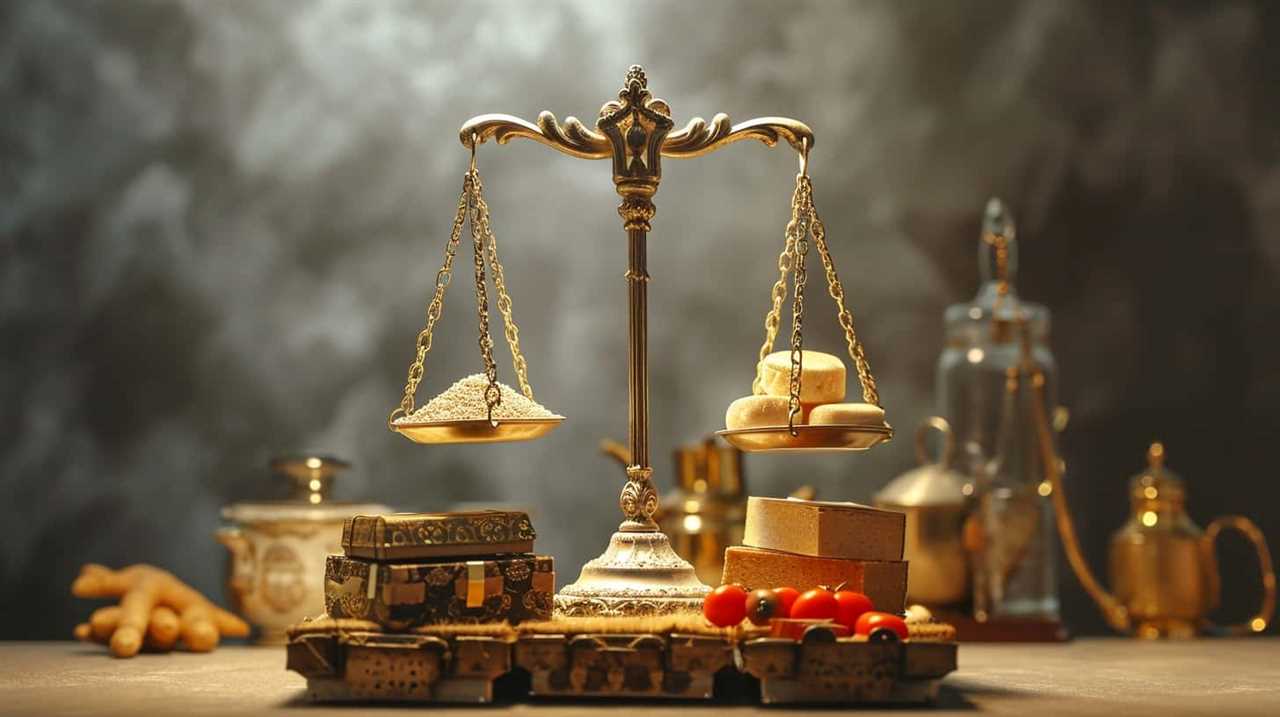
How Does Capitalism Perpetuate and Exacerbate Class Struggle?
Capitalism perpetuates and exacerbates class struggle through its inherent system of capitalist exploitation, which leads to social inequality. The pursuit of profit by the capitalist class creates an unequal distribution of wealth, power, and resources, further widening the gap between the bourgeoisie and the proletariat.
Are There Any Examples of Class Struggle Outside of the Proletariat Vs. Bourgeoisie Dynamic?
Outside of the proletariat vs. bourgeoisie dynamic, class struggle can be observed through the lens of intersectionality, where different social identities intersect with class to create unique forms of oppression. Additionally, class struggle is evident in post-colonial societies, where colonial legacies perpetuate social and economic disparities.
How Has the Concept of Exploitation and Alienation in Class Relations Changed in Modern Societies?
Globalization has significantly impacted class relations, as it has intensified exploitation and alienation in modern societies. Technological advancements have further exacerbated these issues, leading to new forms of exploitation and alienation in the globalized world.
Conclusion
In conclusion, Marx’s class struggle theories provide valuable insights into the dynamics of society and the power imbalances that exist within it.

His analysis of capitalism and the exploitation of the working class remains relevant today, shedding light on contemporary issues such as income inequality and social injustice.
While some may critique and challenge Marx’s theories, his ideas continue to shape our understanding of class relations and the need for revolutionary change.
It’s through understanding and challenging these systems that we can strive for a more just and equitable society.
